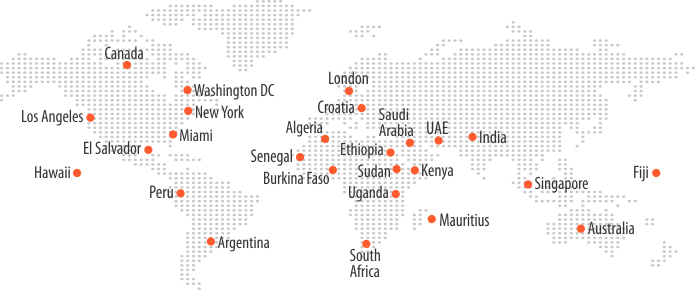3 Big Opportunities Telcos Can Monetize In IoT Driven Marketplace

Telcos have gained immensely from the revenue stream generated by the wholesale voice business for a long time, and then when there was a dip in this revenue stream, it turned to VoIP and embraced the very cause of disruption, again gaining immense benefits. Today, we see that IoT is becoming more pervasive each day. The interlinking of devices and computers is revolutionizing communication, thus creating massive opportunities. This puts the telecommunication industry in a unique position to leverage the IoT revolution.
Here’s why?
Simply put, the Internet of Things refers to billions of connected devices with an infinite array of sensors. By 2020, we will have around 50 billion connected devices from watches and television sets to pipelines, mining equipment, and jet engines.
While there is a lot of focus on developing new IoT powered connected devices, we have not adequately focused on how we will manage these millions of connected devices and how we can make the most of the immense amount of data generated from this connectivity and communication amongst devices. Here the telecommunication companies have an advantage over other sectors, and hence will fare well, in facing this onslaught of complexity presented by the IoT revolution.
Let us see some big opportunities the industry can target and monetize in an IoT driven marketplace!
Connectivity
Telcos, already have the ability and experience to maintain and manage a complex connected environment – and can serve as active partners to IoT customers. Telcos can derive maximum benefits by creating a base of IoT devices on their networks. They can be the connectivity providers and make the requisite infrastructure available for IoT service providers to connect machines and sensors thus draw revenue from this IoT revolution for the longest time. We have already discussed how Telcos have the needed experience and capability to keep the internet of things up and running. This is the reason why Telcos will be able to gain the trust of businesses and consumers and bag the most profitable propositions for providing connectivity for IoT.
Device Management Solutions
As we already discussed, by 2020 everything is going to get connected and only an established telecommunication service provider will be able to manage billions of devices over their network. In this scenario, lifecycle management of IoT devices, both on the layer of connectivity and application, right from the stage of design to manufacturing, integration, deployment and device retirement – is a priority. Telcos can forge partnerships with other service providers and businesses, and blend into the IoT ecosystem as lifecycle management experts for these connected devices.
Data and Analytics
When millions of devices connect, a massive amount of data is produced and transferred. Telcos have access to all this data, and should put maximum efforts in developing their critical data analytics capabilities. Ethical use of this data to derive actionable insights can become a ground breaking opportunity for Telcos and seems ideal for monetization.
The telecommunication industry is highly versatile in handling disruptions and mining new revenue streams. The proof of this is the way Telcos have beautifully embraced VoIP and turned wholesale VoIP into a profitable business. Now is the chance for Telcos to embrace IoT and be future ready. By welcoming change, adapting to new technologies and always believing in innovation, Telcos will evolve and turn the business into a highly profitable pursuit.





